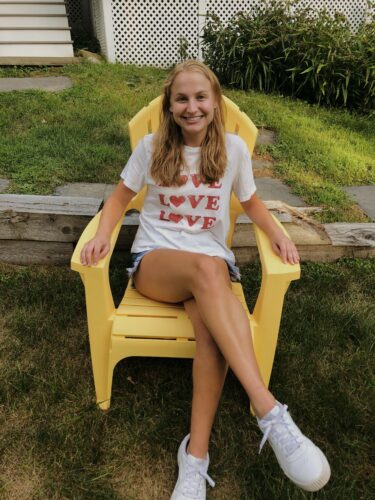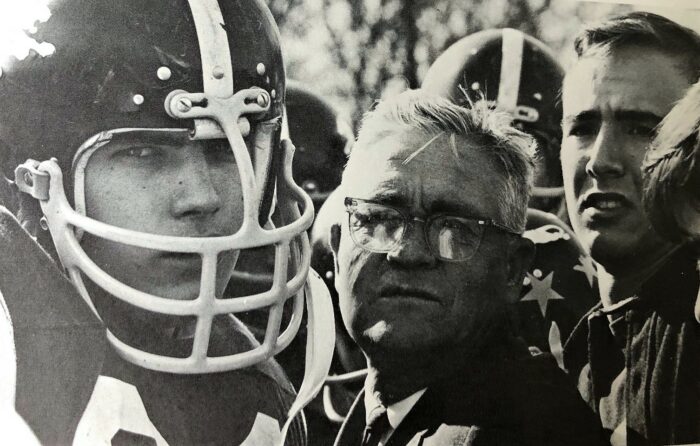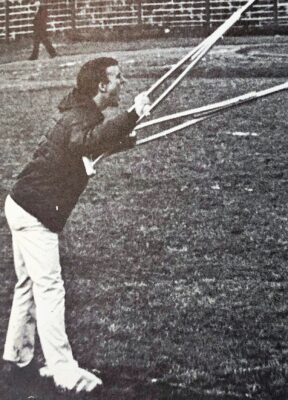After a generation in the community, my family is moving on, which is bringing up a range of thoughts and feelings. In reflecting on how Armonk shaped me as a person, I’m struck by how much of a gift it was to grow up here: the natural beauty, sense of safety, abundant opportunities. And how no gift comes without its price.
For me, a town like Armonk’s most potent gift is achievement culture. Like many families who flocked here in recent decades, we were drawn by the quality of the school district. My siblings and I dutifully jumped through all the academic hoops, orienting towards what seemed like a shared north star of get good grades, to get into good schools, to get good jobs, to afford good things, to have a good life and create a better one for our posterity.
But because that cycle had been spiraling upwards for three or four generations, and then comes along little anxious Andrew in one of the wealthiest and most academically competitive zip codes in the United States, the story I internalized was that I had to do something BIG in order to feel complete, loved, accepted. Which would look something like brute force way into Ivy League, let loose to compensate for emotional and spiritual malnourishment, burnout and move to India for detox and balance. Then brute force way through Silicon Valley, get lost in the clouds of saving the world, go to my room to think about what I’ve done. In both cycles, I almost didn’t make it out alive.
Acknowledging the multiplicity of backgrounds and ways that others experience this neck of the woods, I wonder why we don’t give more attention to the impacts of pressure of expectation and narrow definitions of success. Especially amidst an exploding global mental health crisis and increasingly destabilized society. It makes me wonder if poor mental health and resilience are the biggest prices we pay to live in a place like Armonk or countless other suburban, achievement-oriented communities around Westchester and the world. And if so, how can we acknowledge and shift that in a good way?
Beyond mental health, what if overachieving atrophies our capacities for resilience? Rigid identities (“I am my job”) and expensive habits (“my net worth is my self worth”) can lead to isolating cycles of wealth accumulation in which we meet more of our needs through buying things instead of through community support, making us more fragile to shocks to the system and less adaptable to change. I’m not against wealth. I am for awareness of the tradeoffs; especially the unnecessary suffering in pursuit and as a result of wealth.
I’m also curious about the impact of achievement culture in this historical moment when it has become clear that our Western consumerist lifestyles bear the bulk of the responsibility for the planetary crisis. With an estimated one billion humans displaced by 2050, will we environmentally, socially or spiritually be able to pursue a high earning career, that will afford a McMansion(s) life, with multiple new of every thing every time it breaks or the styles change, to then herd our kids into elite educational and professional paths that exacerbate the situation? Whew. The complexities of navigating life during the sixth mass extinction are heavy. Compassion all around.
Educator Zak Stein in Education in Education is the Metacrisis points out that when social systems are in periods of rapid transformation, the role of schools becomes contradictory. They teach knowledge that is no longer relevant, socialize individuals into roles that no longer exist, and provide the mindsets needed to continue ways of life that are rapidly disappearing. Zak argues that students deserve an education relevant to the world they inherit, and that the future depends on the articulation of a new vision of humanity. What might that look like?
In 2018 I received a tear-jerking vision for Armonk’s future during a meditation session. I saw the possibility of: flourishing individuals, families, and community. Children coming alive, discovering their authentic passions, bringing their fullest expression forward, cultivating healthy lifestyles. Beautiful threads of love and healing, weaving the fabric of our social relationships into a beautiful tapestry. Joyful, educational, and supportive interactions between neighbors, generations, and unlikely friends. Group therapy for those wounded by the common thread of pressure of expectation to conform to a narrow life path and identity. Excess resources flowing naturally to the areas of greatest need. Courageous gestures of resistance and care amongst those in positions of power. A shared motivation to leave Armonk better than we found it. The potential of Armonk as a role model for upper class achievement communities.
Utopian fantasy, or within reach and worth orienting towards? What is the role for a resourced, elite-adjacent (2%?) community like Armonk in the transition from here to there? I’m encouraged by initiatives like the Byram Hills Challenge Success program to center student wellbeing, and the Buy Nothing community on Facebook to promote sharing economy principles. I believe our religious institutions have a significant role here, with time tested wisdom that holds clues to the big questions, including how to build resilience. And I believe in every person. Any citizen can step into leadership now. We can choose what happens next. We vote everyday for the town we want with our words, dollars, choices and ideas. What would a Renaissance of civic engagement look like? What do you perceive is imbalanced in Armonk? What are you positioned to change? What is your unique perspective that gives birth to your unique gift?
What if all the achieving and wealth accumulation was in service of freeing up time so that we might focus on cultivating resilience, healing, self and community actualization of the next generation? I hope that children who have such a large safety net(s) may be fully supported in becoming artists, activists, healers and roles of service we can’t even imagine. That one of the primary goals of Armonk be to identify their true gifts, and help them bring them into the world in a good way.
Many in Armonk have the privilege to think about these bigger questions, take risks, rest and play and create. Let’s play with the levers to balance things out: less virtue signaling, more vulnerability. Less wealth, more health. Less mundane, more sacred. Less consumption, more creativity. Less avoiding pain, more attaining joy. Less external power, more internal strength. Less speed, more depth. Less security, more choice.
At the end of the day, there’s no perfect town. There are no easy answers here. Armonk is a mixed blessing for many. Perhaps this is our unique paradox to wrestle with: how to create the best life for ourselves and the next generation, without crushing them, atrophying resilience, and harming people or planet. Maybe it’s one we’ve been wrestling with since time immemorial.
The unabridged version of this letter was first published on Medium in late 2021.




